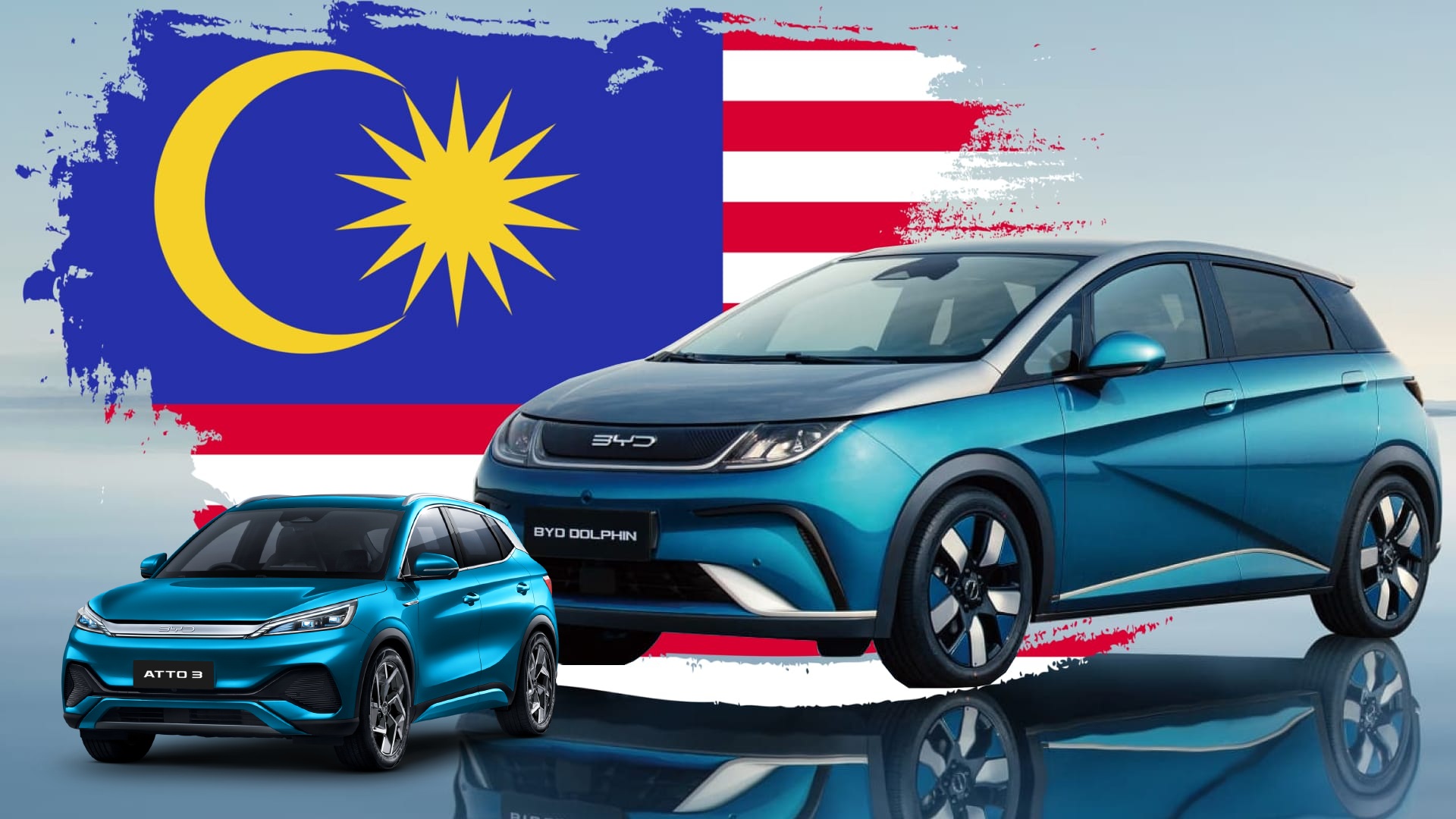THEE cost-of-living crisis continues to grip the global economy. It affects everyone in different ways. For instance, in colder European climates, elderly pensioners are unable to afford heating leading to many deaths.
Closer to home, the price of electric vehicles (EVs) is a bone of contention. Posting on X, industry observer Khalid Karim ARISE MALAYSIA (@khalidkarim) grumbled that Malaysian motorists seem to be paying premium prices for EVs available in other countries at lower cost.
In Thailand, the BYD Dolphin starts from RM64k.
In Malaysia? RM100k.The Atto 3 in Thailand? RM90k.
Malaysia? RM150k.Malaysians are paying +26% to +66% more for the same EVs.
Different country, same car.
But here, everything becomes “luxury”. pic.twitter.com/UfSQurnDKs— khalid karim ARISE MALAYSIA (@khalidkarim) April 27, 2025
Editor’s Note: Khalid had earlier questioned why Malaysian national car manufacturers PROTON and PERODUA were only able to export US$420 mil worth of cars in 2023 compared to Thailand’s US$12.2 bil.
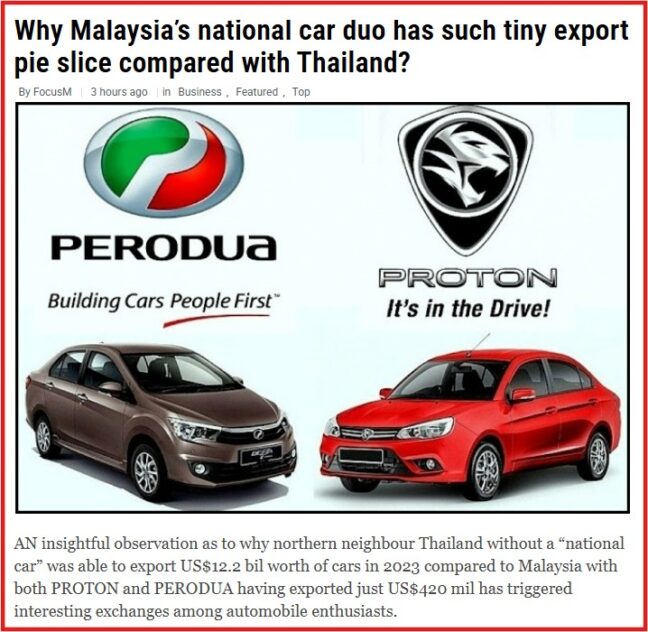
Comparing Thailand to Malaysia, the poster points out that Malaysians seem to be paying between 26% and 66% more for similar vehicles, citing the BYD Dolphin and Atto 3 as examples.
The former marque starts at RM64,000 in Thailand but is priced from RM100,000 locally. The latter is priced at RM150,000 for the domestic market – a whole RM60,000 more than what Thai citizens would pay for the exact same vehicle.
A few netizens echoed the poster’s sentiments Even @grok – the X platform’s AI (artificial intelligence)-powered chatbot – confirmed that Malaysians are indeed paying significantly more for the same BYD EV models compared to Thailand.


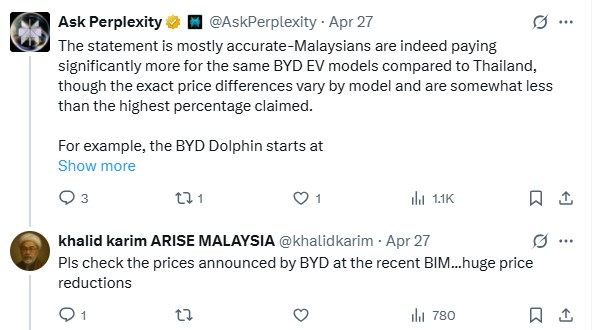
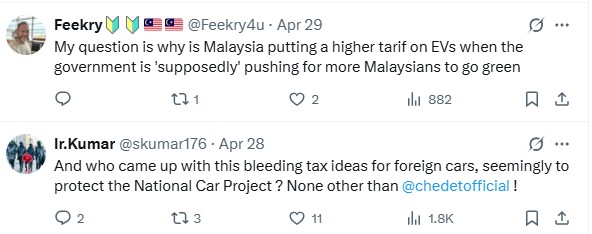
Some contended it was necessary to protect the local car industry and the many related jobs. However, the poster spikily retorted that Malaysians should then pay more for local rice since its more essential than cars.
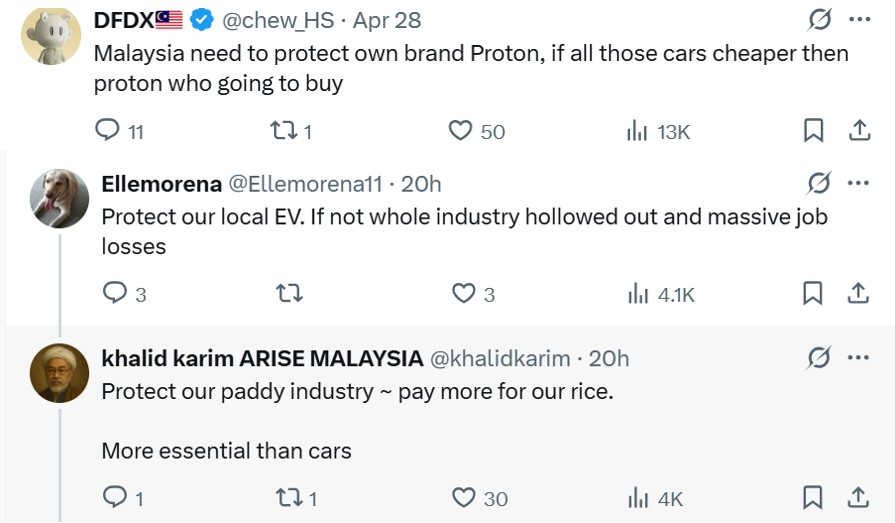
Another commenter argued that it was essential to control the outflow of funds. Hence it is a fair trade-off to buy a locally-produced MyVi at under RM64,000 given a car is a luxury purchase as opposed to a necessity.

Agreeing that the local car industry needed protecting, one netizen did query why were locally-produced cars priced so high?

Citing the BYD Dolphin, one commenter pointed to the adding of differing features and specifications for the price differential.

Time to get rid of protectionism, declared one netizen, who is clearly fed up with “useless car companies making profit out of their own people”.
He hoped the expiry of the Franchise Approved Permit programme a.k.a. RM100,000 minimum price policy by end-2025 will result in cheaper EVs.

This sentiment was echoed by others who agreed that the time is ripe to get rid of such “dumb policies”. It would be better to invest in public transportation structure, argued one commenter.
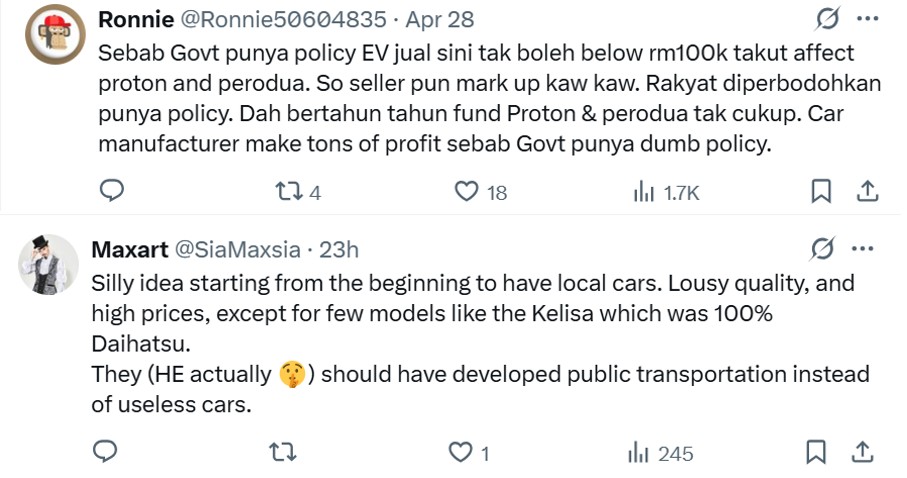
Some believed this was good to prevent the already congested roads coming to a complete standstill.

The high price of cars has been a bone of contention for decades. But with it so closely entwined with local economy, can meaningful change be made to bring costs down – local or otherwise – without causing massive unemployment problems?
It is a complex problem with many repercussions. In the meantime, Malaysians will need to keep forking out premium prices for foreign-made EVs. – April 30, 2025
Main image credit: Car News China


